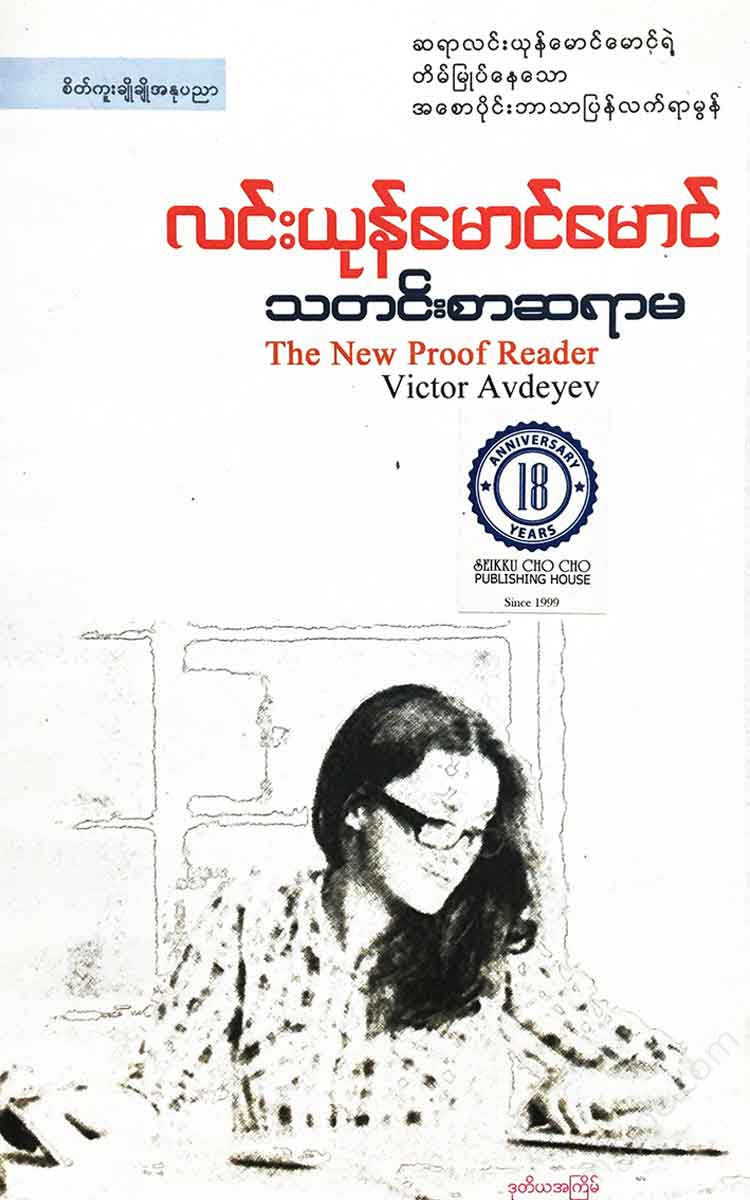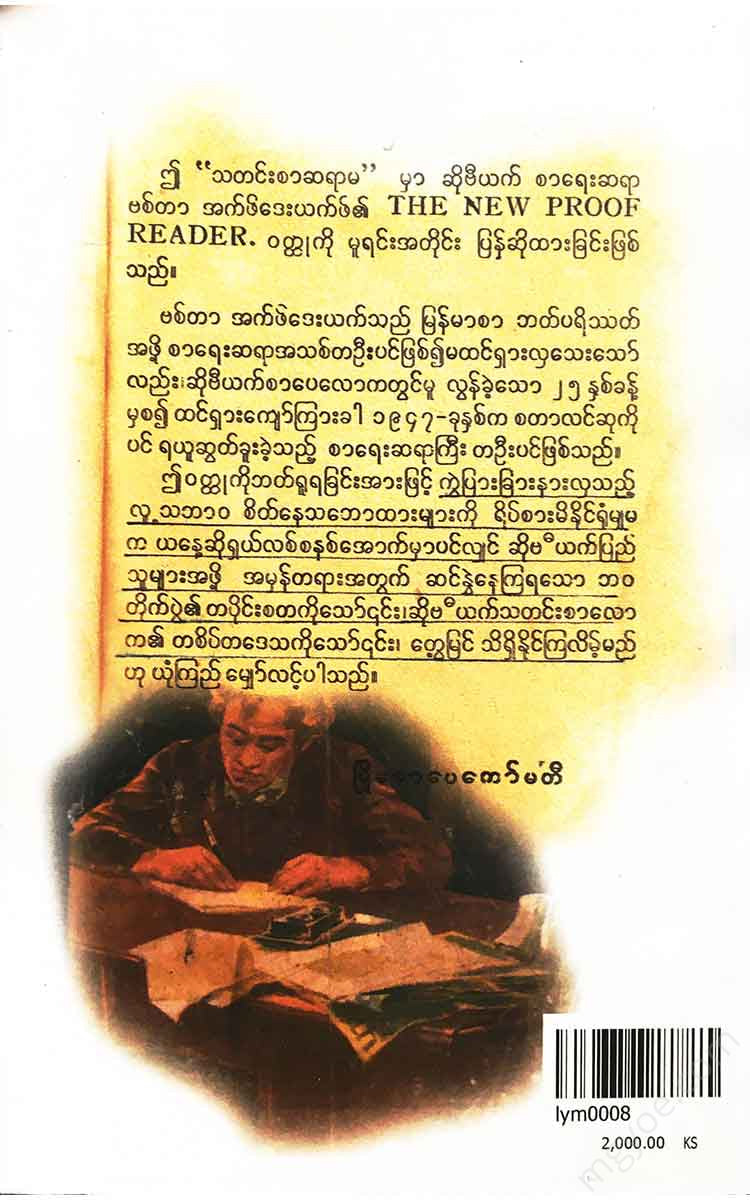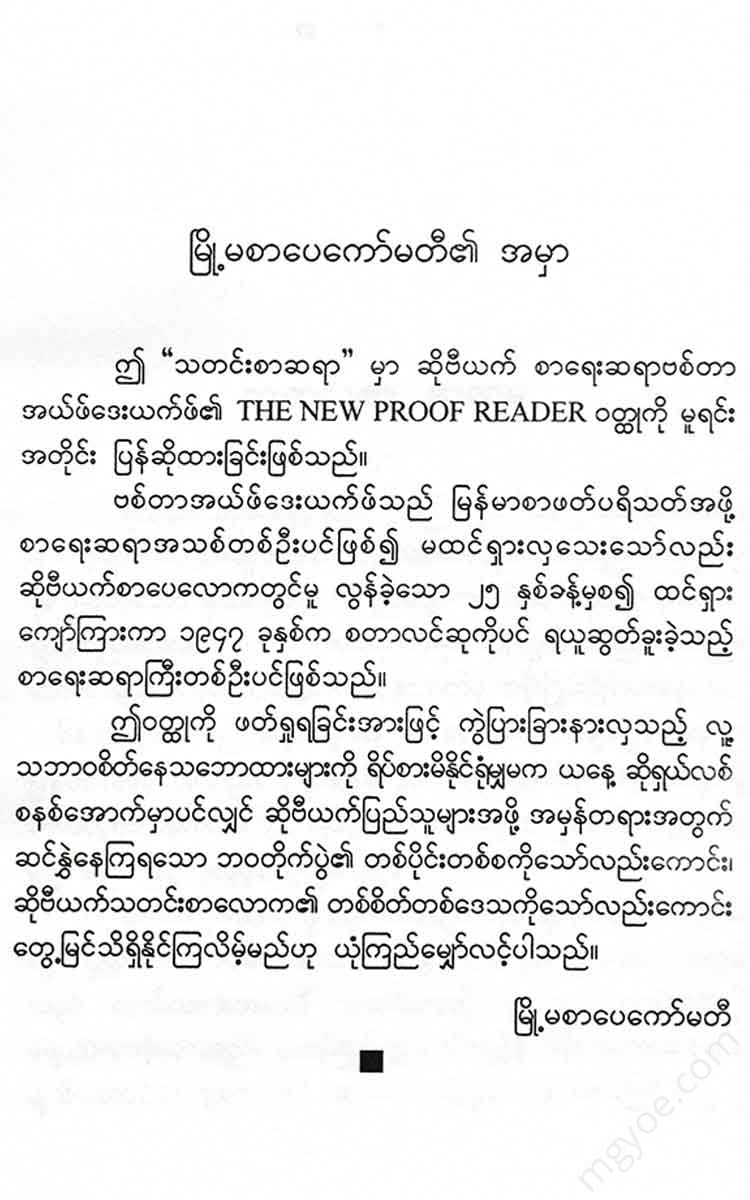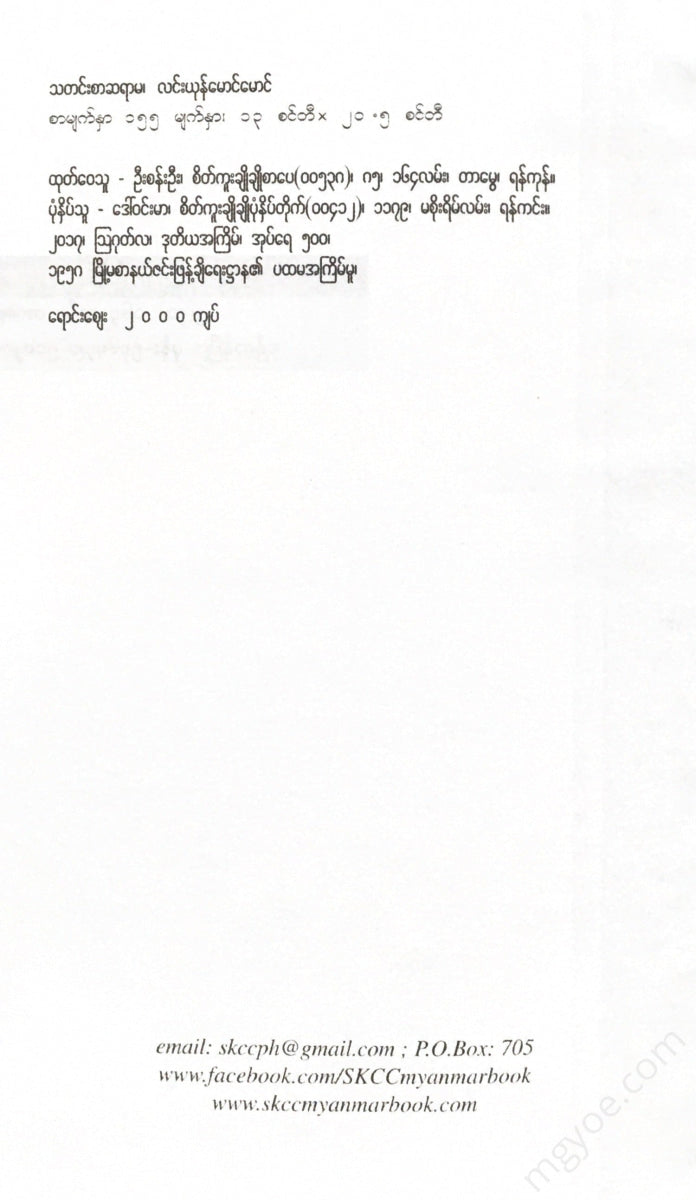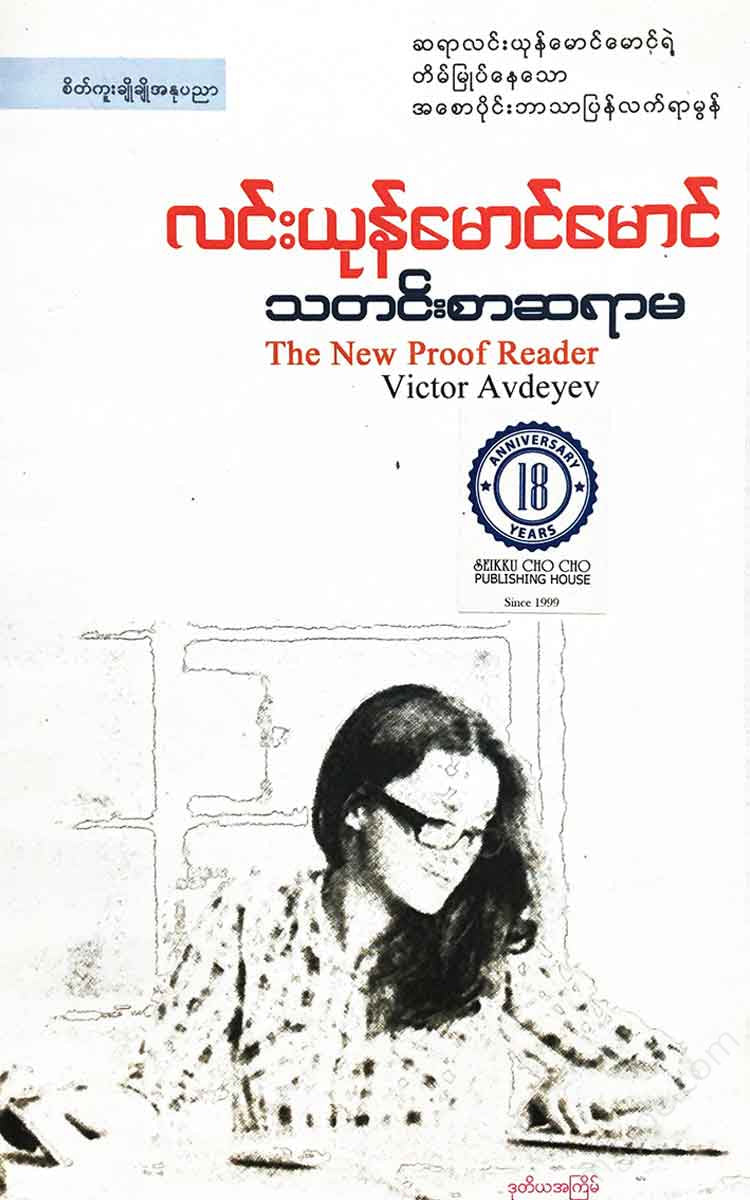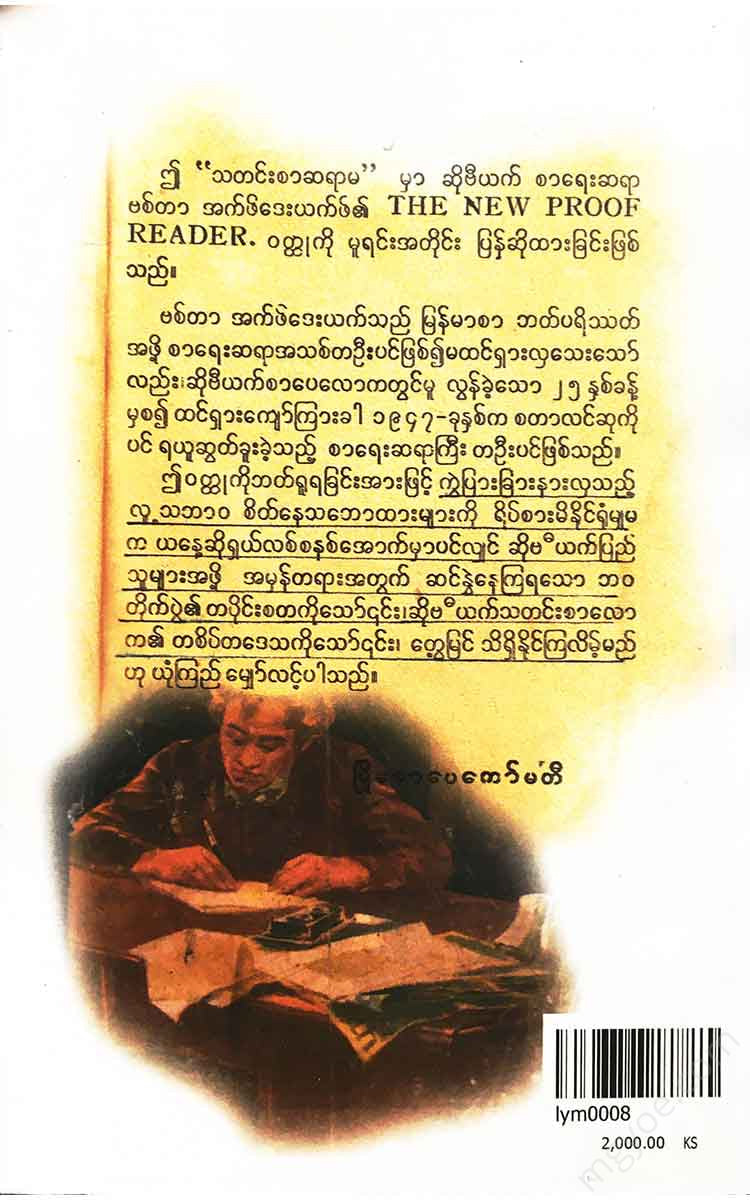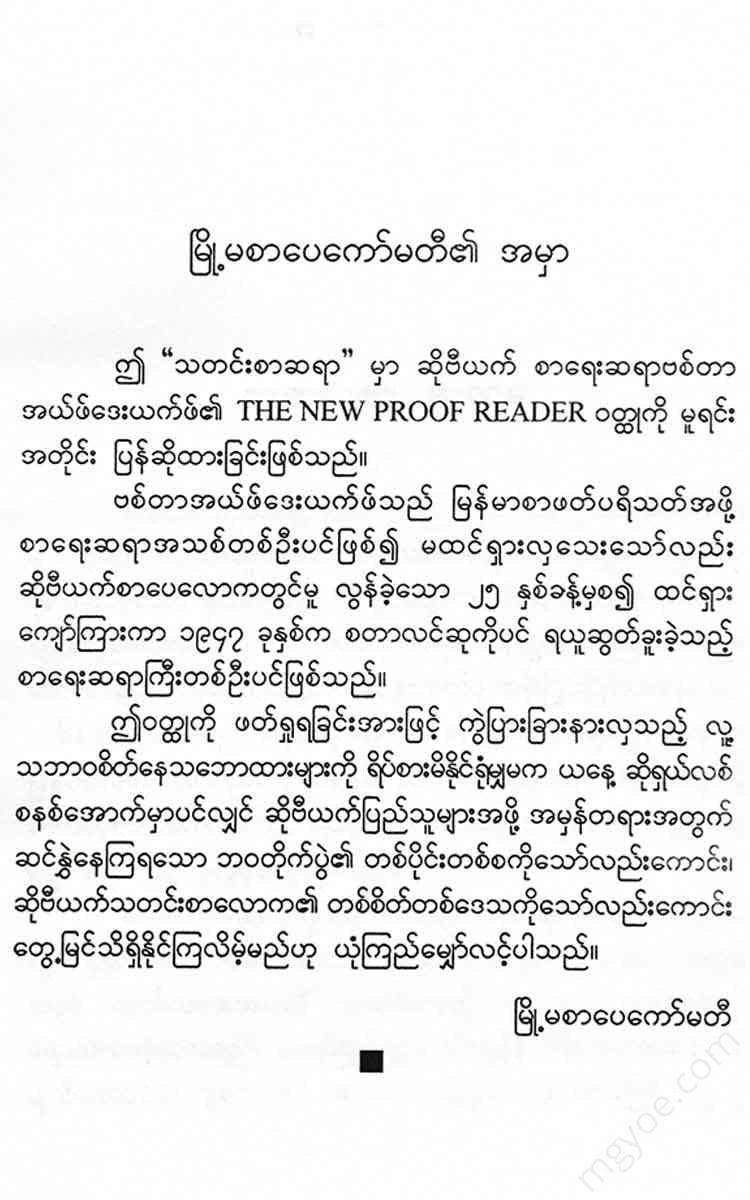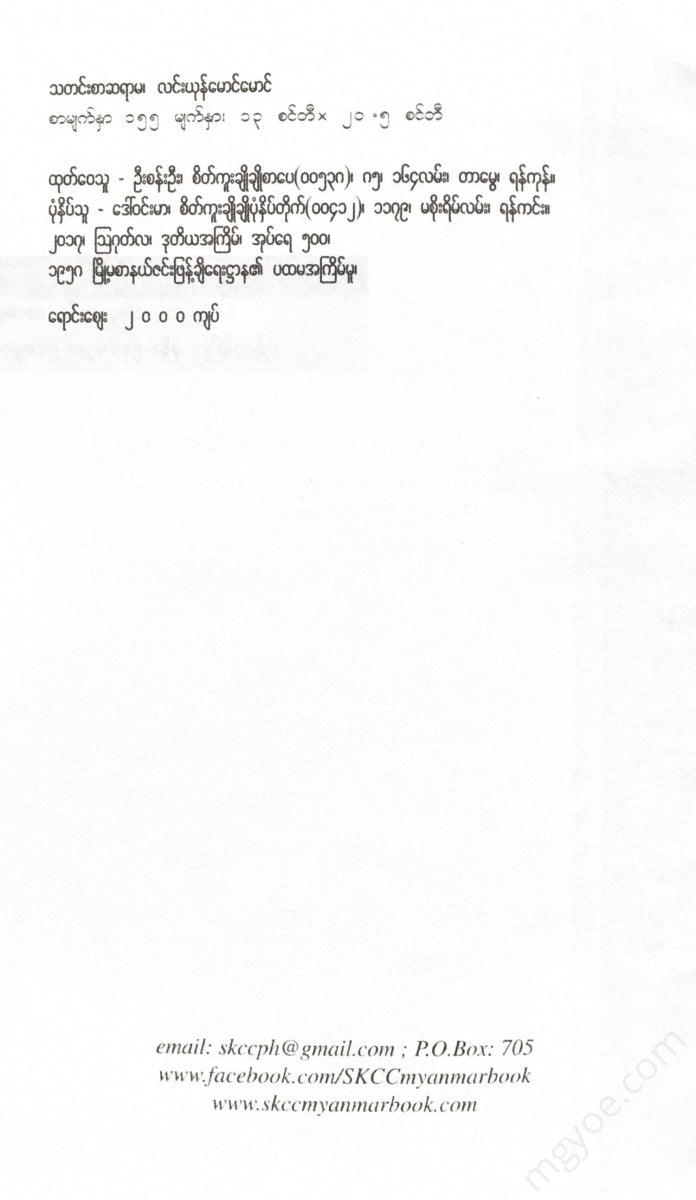စိတ်ကူးချိုချိုစာပေ
Linyon Maung Maung - Journalist
Linyon Maung Maung - Journalist
Couldn't load pickup availability
The damp wind and fog blew away the last remaining snowflakes. The frost that covered the ground melted and flowed away, revealing the dark, hard branches of the willows. The bare forests beyond the Bolshoi Yugoni region also came to life with the chirping of woodpeckers. At this time, at the edge of the forest,
The horsetail flowers on the mountainside have also begun to bloom in a pale yellow color. It's done.
One day at the end of March, Mazharok, a teacher of Russian literature at a local school, came to the editorial office of the newspaper "Peasant's Integrity". Tall, with red cheeks and girlish eyelashes, and a youthful appearance, the whole village affectionately called him Vosya. When he spoke, he spoke with such urgency, as if he were talking about a matter of life and death, and without taking a breath.
"Weekseven... I finally got to catch you."
Mazharov shouted from the entrance of the office, as if the editor was really trying to escape from him. As he spoke, he entered the office, took out a copy of the "Peasant's Tale" newspaper from his coat pocket, slapped it hard with his hand, and said in a loud voice.
"What are you journalists doing? Look at you, you're not even remotely serious. You're a laughing stock in the Yukon. We teachers like you are ashamed of you."
"Wait, Vasya, how did you become like that?"
Vysev interrupted in a sarcastic tone, pushing his buffalo-rimmed glasses up over his face. Editor Vysev had a messy, unkempt beard, as if he had just come out of the barbershop. But instead of clothes, he was wearing the same old, casually sewn military uniform with long medal bars, and he was puffing smoke from a pinewood cigarette.
"How could it be?" Mazharov patted the newspaper again, his face turning even redder.
“Don’t you see here, what’s wrong? Do you know how my students do this Samadhi newspaper? They buy this newspaper and read it to find out what’s wrong with it. They think it’s a fun job for them. Really, Weekly Seven, do you have anything to be proud of among your editors? What about your editor? If that’s the case, he needs to learn grammar. Here… See for yourself.”
As he spoke, he spread the newspaper out on the table, the pages rustling. The newspaper was lined with red and blue ink, making it look like a student's exercise book.
The whole office fell silent. The editor, the literary columnist, and the cashier all looked at the same time towards a certain place in the room. There, on a chair near the window, a woman, wrapped in a small fur coat, was reading the revisions. Her delicate cheeks were crimson. The hand holding the pen was shaking, and ink was dripping from the tip.
Mazharov suddenly became confused and stopped.
"Vasya, come to your room," said Vyshev, taking the teacher by the shoulder.
"You're shouting like a kettle of hot water is about to boil, but the water is actually boiling, so it's not boiling yet, is it?"
The next day's edition of the Peasant's Integrity newspaper was piled up on the editor's desk. Yuri Klimitsev, the administrative secretary, was carefully editing the editorials, line by line. He often had to finish the newspaper himself. Sometimes, on weekends, he was absent from the newspaper, either because he had to attend a meeting of the district party committee, or because he had to speak at a training course for workers' leaders, or because he was away fighting political and economic struggles.
"You guys have a new proofreader, right?"
Mazharov turned to look at the main office, shook his head, and asked softly, "Who is that girl in white over there... I don't know at all... What is her education level?"
Vyshev lit his cigarette and exhaled a long stream of smoke from his mouth before answering Marzharov.
"His academic qualifications are that he has completed middle school. What grades did you complete? You are so rude that you shout like a green fish. The only problem with this is that our proofreader has been out of school for a long time, so as usual, she has forgotten a little, right? That's why there are mistakes."
"He doesn't look so bad," said Mazharov, and then, his mind was wandering again, "I don't think I've ever seen him in Yugoni. How could he be in the forest?"
"Yes, of course, he's from the countryside like me. The only difference is that I've been here for over two months, and Natalya just moved here from the Don River. Her brother works at a cooperative here. And her husband died in the war, leaving her with a child. So, somehow, she needs to help him support himself."
Zavyalov, with broad shoulders, a broad face, dry hair, and a pair of ankle boots, entered and spoke in an important tone.
“Vasya, I heard you criticizing me in the office earlier. In fact, what you said is true, there are mistakes in the newspaper. But to be honest, this is not the fault of one editor alone. The entire editorial team is responsible. And that, as you know, is the situation, the Weekly itself is always overloaded with public affairs, so I alone cannot do everything, and I cannot do it alone, like the actor Rekin. And it is true that the Central Printing Office is doing its best to relieve the overload of work for the editors. But this is also easy to say, but difficult to do. So, instead of writing so extensively to make us aware of our mistakes and pointing them out, I think it would be better if you and the other teachers gathered around and helped us. At least one of you
How many times have I told you to come in and help edit this Samadhi newspaper? Tell me, is what I'm saying true?..."
Weeksev, as usual, was sticking his left hand in his pocket and blowing smoke from his cigarette. Behind his thick glasses, his eyes were filled with indistinct shades, and he spoke in a broken voice. “Yes, but not entirely. No teacher can arrange to be here full-time. And, as you know, important manuscripts sometimes arrive late at night, but somehow we, as an editorial team, are full of people.
"I need to pass," he said, turning to Mazharov and saying, "Okay... Husya, so I want to help you, both as a member of the Communist Youth and as a teacher. I need to teach Natalya Russian. So what do you think? Will you do it? I think it would be much better for her to help me than to hear her blame her."
"To teach the proofreader, rest assured, I'll find an hour a day after school to teach him," said Mazharov, willingly and enthusiastically.
He came into the office a short time later and enthusiastically discussed with Natalia the benefits of studying, which she felt was the most important thing in her life. Natalia agreed to continue studying.
She returned to Mazharov and soon returned home to feed her son dinner.
As is the custom in any office, when a new person joins, there is always something to talk about, and in this newspaper office, too, there is something to talk about about the new editor. The cashier, the editor Natalya, was telling the whole office that she never went out of the house except to do her household chores and to go out with her children. The old woman named Praskovya, who swept the floor, not only supported everything the cashier said, but also added that the editor often went out with her son every day, dressing him up like a doll, just like the big city people do, and driving a tricycle.
"Does he understand what poetry is?" Kolya, a ten-year-old boy studying composition, also asked.
At this, the literary editor laughed and said, "What are you doing? You're thinking of walking with him under the moonlight."
“It’s not time for this count to get tired of being a scoundrel, he’s still young,” said the steward, Zavyalov, in a firm, adult tone. “This guy, Natalya, is writing poems. Or maybe he’s met the poet Misakovsky in person. Anyway, Kolya is writing poems from time to time.
